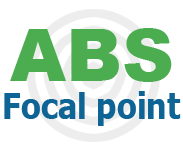
category_news
Digital Sequence Information (DSI): outcomes of the CBD meeting in October/November 2024
The Sixteenth meeting of the Conference of the Parties (COP-16) to the Convention on Biological Diversity (CBD), which was held in Cali, Colombia, in October/November 2024, decided on important modalities of the multilateral mechanism (MLM) for benefit-sharing from the use of Digital Sequence Information (DSI) on genetic resources and its global benefit-sharing fund (the Cali Fund). Users of DSI on genetic resources in sectors that directly or indirectly benefit from its use in their commercial activities are expected to contribute to the Cali Fund. Governments are invited to take measures to incentivize these contributions. All users of DSI on genetic resources should share non-monetary benefits. The Cali Fund is to support the conservation and sustainable use of biodiversity. The Secretariat of the CBD started a follow-up process, with invitations to submit views on various elements of the MLM and the Cali Fund, and to make nominations for various bodies.
Background
During the past few years, an international discussion has been taking place on whether and, if so, how the utilisation of Digital Sequence Information (DSI) on genetic resources should be subject to Access and Benefit-Sharing (ABS) obligations, like the utilisation of genetic resources already is. The main discussion forum is the Convention on Biological Diversity (CBD). The Fifteenth meeting of the Conference of the Parties to the CBD (COP-15), which was held in Montreal, Canada, in December 2022, decided in Decision 15/9 that a multilateral approach would be followed for benefit-sharing from the utilisation of DSI on genetic resources, with a global benefit-sharing fund. A follow-up process was set up to discuss modalities and details of the multilateral DSI mechanism. The Ad Hoc Open-ended Working Group on Benefit-sharing from the Use of Digital Sequence Information on Genetic Resources (OEWG-DSI), a working group within the CBD, played a key role in this process. The final document (draft recommendation) of the last meeting of this OEWG-DSI still had very much text in brackets, which meant that there was no agreement on it, and it had to be further negotiated during COP-16.
DSI outcomes of the CBD meeting in October/November 2024 (COP-16)
COP-16 agreed on a DSI decision (Decision 16/2), consisting of a main body, an Annex with the modalities for operationalization, and six Enclosures to the Annex. The main body of the decision adopts the modalities of the multilateral mechanism (MLM) for the fair and equitable sharing of benefits from the use of DSI on genetic resources, including a global fund. It also establishes that the fund of the MLM will be known as the Cali Fund for the Fair and Equitable Sharing of Benefits from the Use of Digital Sequence Information on Genetic Resources.
As for the modalities of the MLM, Article 1 of the Annex explains that the MLM covers DSI that 1) is made publicly available in compliance with national legislation, 2) is not subject to mutually agreed terms (MAT) established at the time of access to the genetic resources from which the DSI is derived, and 3) does not fall under other international ABS instruments. Article 3 of the Annex states that users of DSI on genetic resources in sectors that directly or indirectly benefit from its use in their commercial activities should contribute a proportion of their profits or revenue to the global fund, according to their size. Users that exceed at least two out of three of thresholds (total assets: 20 million United States dollars; sales: 50 million dollars; and profit: 5 million dollars) should contribute to the Cali fund 0.1 per cent of their revenue or 1 per cent of their profits, as an indicative rate. A list of sectors to which such users may belong is contained in Enclosure I of the Annex. Article 5 of the Annex says that Article 3 does not apply to entities active in the sectors listed in Enclosure I that do not directly or indirectly use DSI on genetic resources, while Article 9 makes clear that entities operating public databases and public research and academic institutions are not expected to make monetary contributions to the global fund. However, all users of DSI on genetic resources should share non-monetary benefits (Article 6 of the Annex). Although the decision is not legally binding, Parties to the CBD and non-Parties are invited to take administrative, policy or legislative measures to incentivize users to contribute to the Cali fund (Article 13 of the Annex). For each year that users make contributions to the fund in line with the modalities, they will be considered as having fairly and equitably shared monetary benefits arising from the use of DSI on genetic resources under the MLM and they will receive a certificate. This certificate excludes the user from any expectation to share further monetary benefits from the use of DSI within the scope of the MLM for that year (Article 15 of the Annex). Article 18 of the Annex states that the Cali Fund should support the realization of the objectives of the CBD in developing countries, especially the conservation and sustainable use of biodiversity. According to Article 21 of the Annex, in principle, at least half of the funds should be used to support Indigenous Peoples and Local Communities (IPLCs), in developing as well as in developed countries. The United Nations through the UN Multi Partner Trust Fund Office will administer the fund, under the authority of the Conference of the Parties of the CBD (Article 23 of the Annex).
The DSI decision was adopted at the very end of COP-16, and it was the last decision before the meeting was suspended because the number of Parties present had become too low. Although the decision deals with various important elements of the MLM and its fund, it will require substantial intersessional work for the MLM and the Cali fund to become fully operational. The aim is to have contributions received by the Fund before COP-17 in 2026. Also a review process for the effectiveness of the MLM, including the Cali fund, has been built into Decision 16/2. This review will take place at COP-18 in 2028, and will consider the elements listed in Enclosure VI of the Annex to Decision 16/2, including factors relevant to the feasibility of the voluntary extension of the MLM with genetic resources at a later date.
Follow-up process
Although COP-16 agreed on important modalities of the MLM, various other points remain unclear and need to be clarified in a follow-up process. To start this process, the Secretariat of the CBD issued four notifications in December 2024. Notification 2024-113 gives general information on the MLM and the Cali Fund, and invites the submission of nominations for the Steering Committee of the MLM (deadline 7 February 2025) and the Ad Hoc Technical Expert Group on Allocation Methodology (deadline 7 March 2025). Notification 2024-114 invites Parties, other Governments, IPLCs, and relevant organizations to submit their views on possible additional modalities of the MLM (deadline 21 March 2025). Notification 2024-115 invites Parties, other Governments, IPLCs, and relevant organizations to submit views on possible new tools and models for making DSI on genetic resources publicly available and accessible (deadline 4 April 2025). Finally, Notification 2024-116 invites Parties, other Governments, IPLCs, and relevant organizations to submit information on national, regional or international standards on thresholds for distinguishing small, medium and large entities (deadline 18 April 2025).
For more information and for sharing your views related to elements of the follow-up process, you may contact Ms Kim van Seeters (ABS Competent National Authority; k.vanseeters@minlnv.nl) or Mr Martin Brink (National Focal Point on ABS; martin.brink@wur.nl).
